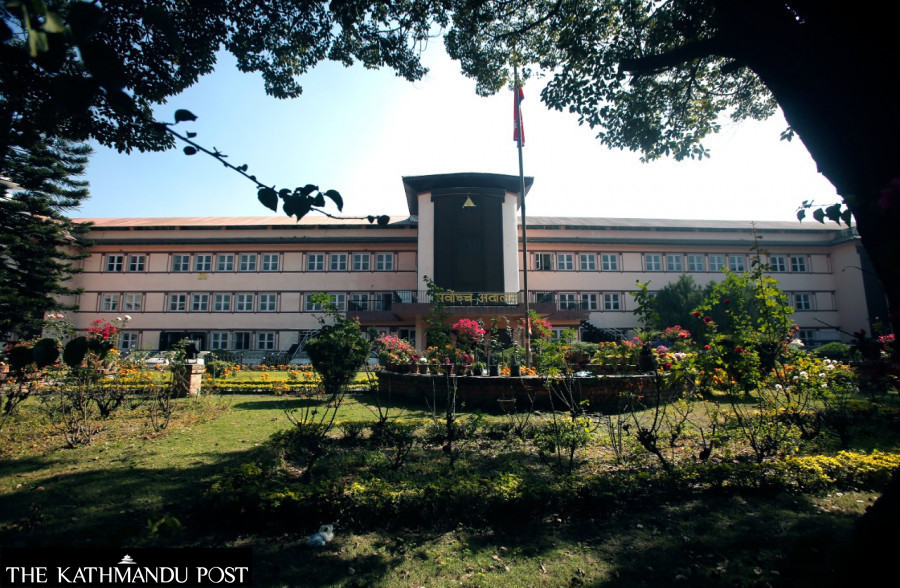National
Legislative authority of local government not absolute: Court
The order restores school management committees dismantled by the Kathmandu Metropolitan City.
Binod Ghimire
Local governments do not enjoy absolute legislative authority, the Supreme Court has said.
Although the Constitution of Nepal allows local units to enact their own laws, the top court said the right is relative and must be in line with the federal laws, even in the case of explicit constitutional authorities.
Scrapping a provision in the Kathmandu Metropolitan City Education Act, the Constitutional Bench has said the local units, while enacting any laws, must consider that the country’s federalism is based on cooperation, coordination and coexistence between the three tiers of government.
Revising its Education Act, 2018, the metropolis on July 27 last year inducted a provision that the ward chairpersons would be ex-officio management committee chiefs of community schools in their respective wards. Enforcing the amended Act, the metropolis dismantled school management committees to appoint its own ward chairpersons as chiefs of the committees.
As many as 17 sacked chairpersons of school management committees led by Hitkabir Singh Kansakar from Paropakar Adarsha School had challenged the decision in the Supreme Court, claiming the move contradicts the Education Act (federal) 1971 and it was against the principle of natural justice to dismantle their committees abruptly.
“Although local units can enact laws to implement their constitutional authorities without contradicting the spirit of the constitution, existing legal processes and established democratic values and principles,” reads the full text of the verdict from 24 July released Tuesday, “it is unjustified for local units to think that their legislative jurisdiction is without boundaries.”
The five-member bench led by then Chief Justice Bishowambhar Prasad Shrestha has said though the constitution lists several functions as explicit authorities of the local level, they also fall under the ambit of the federal and provincial governments in one way or another.
Schedule 8 of the constitution lists “basic and compulsory education” as explicit authority of the local units but “education” has been listed as concurrent authority of all three tiers of governments in Schedule 9. “Therefore, provincial and federal governments also have concerns with education-related laws [of the local units],” reads the ruling.
The bench has concluded that the amendment to the KMC’s Education Act narrows down public participation in school management while it should be broadening it. As demanded by the plaintiffs, the court has ruled that scrapping school management committees without allowing their office bearers to offer their clarifications contradicts the principle of natural justice.
Allowing ward chairpersons to lead school management committees invited political interference in schools, according to the ruling.
All the school management committees dismantled by the metropolis last year have been reinstated with the precedent-setting order.
The 1971’s Education Act envisions the school management committee as composed of four representatives of guardians, ward chairperson or a ward member designated by him/her, one among the intellectual or donor, and a teacher from the school. The head teacher acts as a member-secretary of the committee. One among the guardians’ representative or the representative from the intellectual or donor is elected as a chairperson.
The constitution envisions that the local level can enforce laws without contradicting the constitution and federal Acts. The court scrapped the KMC’s law as it contradicted the federal Education law.
The existing law envisions three years of tenure for the school management committees. The court order allows the dismantled committees to work for their full term and opens the door for their replacement.
The court has cited mutually contradictory roles of the ward chairperson to be another reason to scrap the metropolis’ amendment to the school law. The Local Government Operation Act-2017 authorises local governments to monitor and supervise community schools.
Ward chairpersons leading the school management committees means they will be supervising and monitoring their own work. “This leads to a conflict of interest while it also goes against the spirit of separation of duties,” reads the verdict.




 10.12°C Kathmandu
10.12°C Kathmandu















